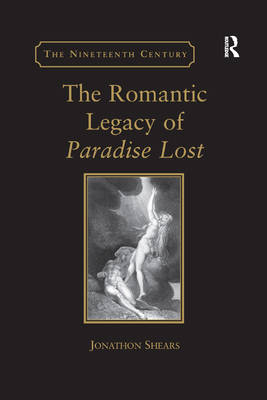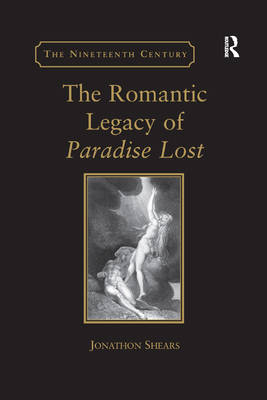
- Afhalen na 1 uur in een winkel met voorraad
- Gratis thuislevering in België vanaf € 30
- Ruim aanbod met 7 miljoen producten
- Afhalen na 1 uur in een winkel met voorraad
- Gratis thuislevering in België vanaf € 30
- Ruim aanbod met 7 miljoen producten
Zoeken
€ 83,95
+ 167 punten
Uitvoering
Omschrijving
The Romantic Legacy of Paradise Lost offers a new critical insight into the relationship between Milton and the Romantic poets. Beginning with a discussion of the role that seventeenth and eighteenth-century writers like Dryden, Johnson and Burke played in formulating the political and spiritual mythology that grew up around Milton, Shears devotes a chapter to each of the major Romantic poets, contextualizing their 'misreadings' of Milton within a range of historical, aesthetic, and theoretical contexts and discourses. By tackling the vexed issue of whether Paradise Lost by its nature makes available and encourages alternate readings or whether misreadings are imposed on the poem from without, Shears argues that the Romantic inclination towards fragmentation and a polysemous aesthetic leads to disrupted readings of Paradise Lost that obscure the theme, or warp the 'grain', of the poem. Shears concludes by examining the ways in which the legacy of Romantic misreading continues to shape critical responses to Milton's epic.
Specificaties
Betrokkenen
- Auteur(s):
- Uitgeverij:
Inhoud
- Aantal bladzijden:
- 232
- Taal:
- Engels
- Reeks:
Eigenschappen
- Productcode (EAN):
- 9780367887971
- Verschijningsdatum:
- 12/12/2019
- Uitvoering:
- Paperback
- Formaat:
- Trade paperback (VS)
- Afmetingen:
- 156 mm x 234 mm
- Gewicht:
- 331 g

Alleen bij Standaard Boekhandel
+ 167 punten op je klantenkaart van Standaard Boekhandel
Beoordelingen
We publiceren alleen reviews die voldoen aan de voorwaarden voor reviews. Bekijk onze voorwaarden voor reviews.











